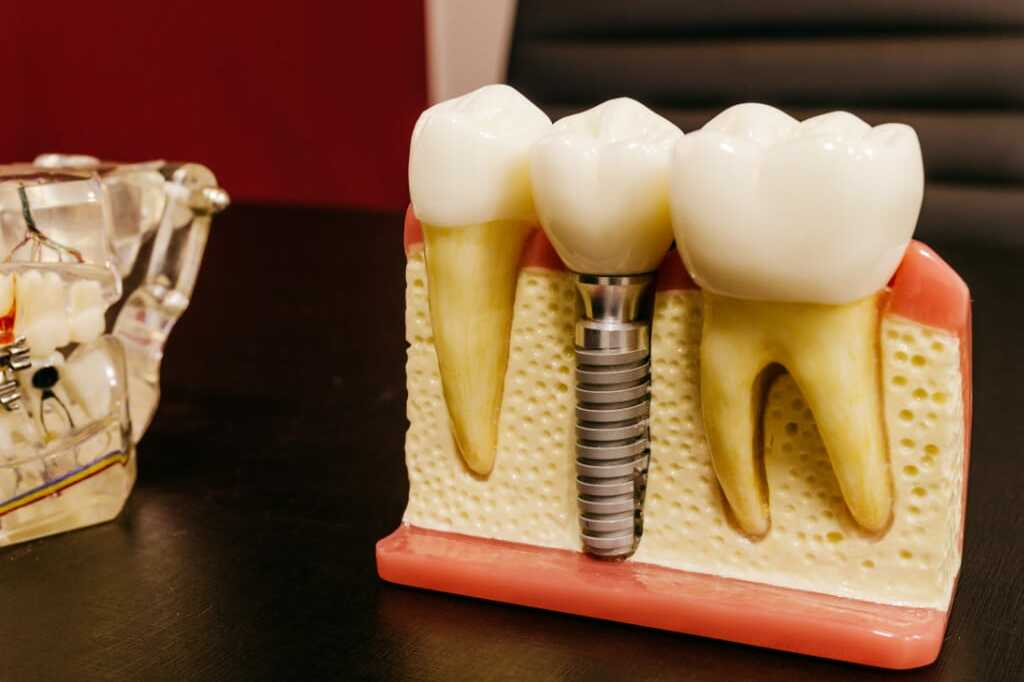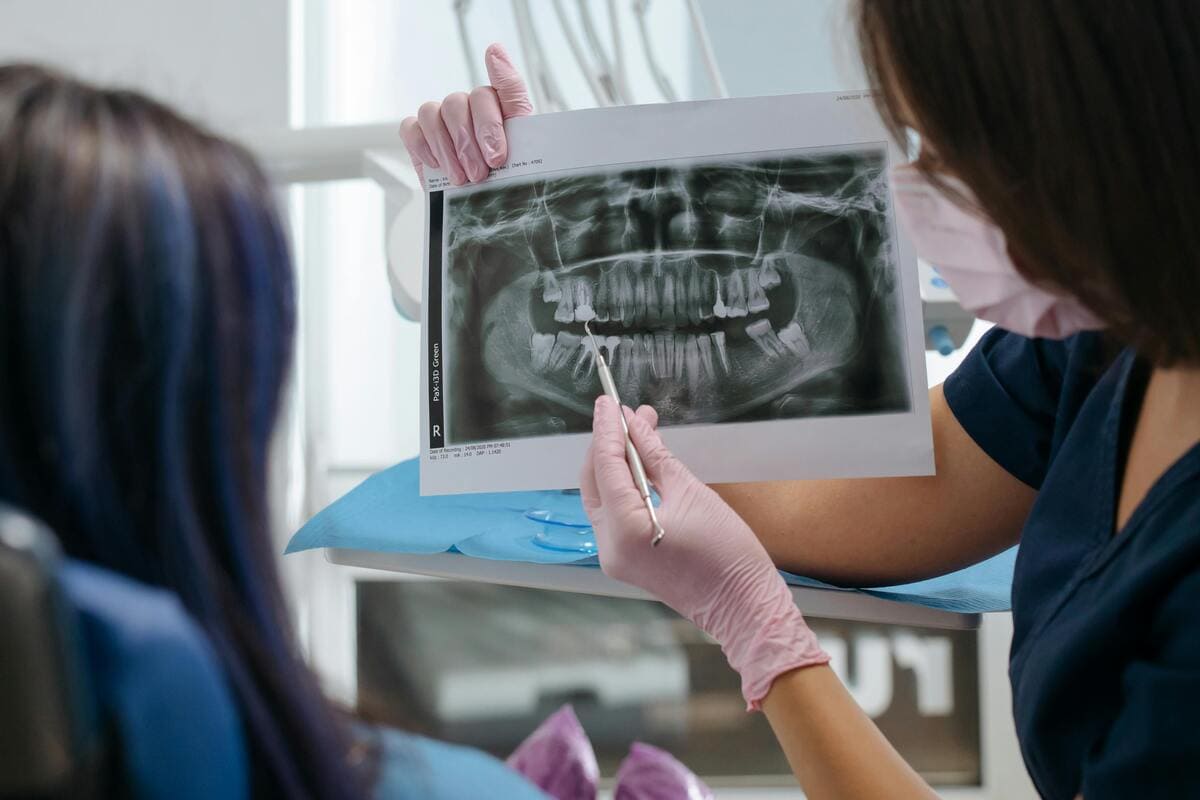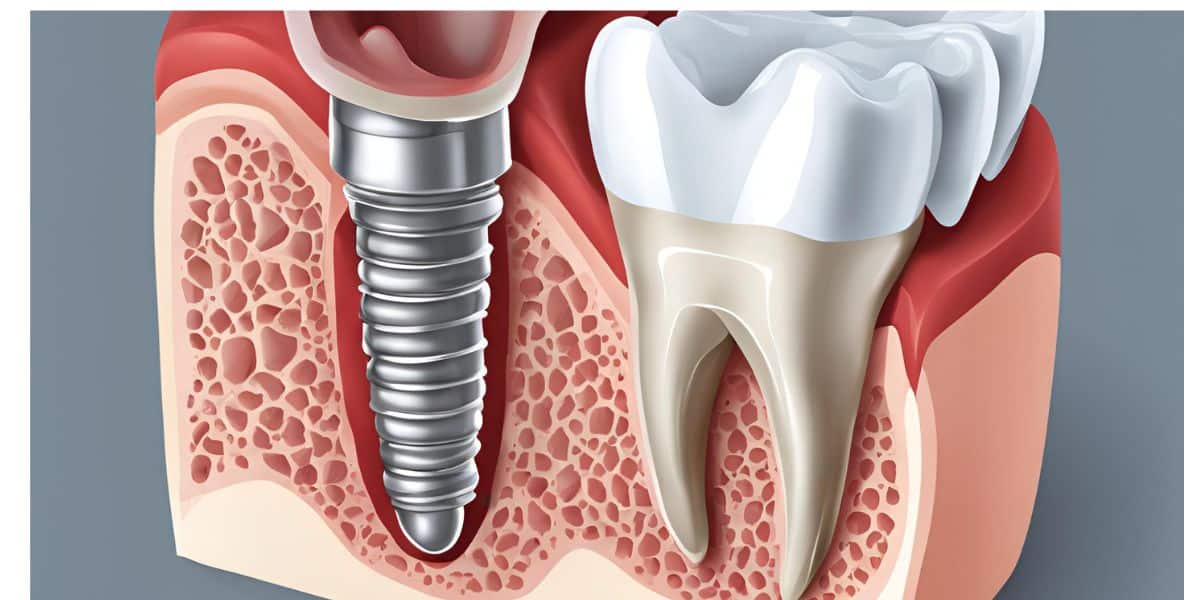Wisdom teeth: a subject that normally generates some anguish in us mainly when they are coming out, because they can cause pain, inflammation if they get obstacles in their way, but hand in hand of a Maxillofacial Surgeon , you can solve it quickly and comfortably
Asiri, as a Trusted Dental Center In this article we will guide you on this issue so that you can understand it and solve it smoothly.
And if you need to extract your wisdom teeth in Quito, Ecuador; we can also help you.
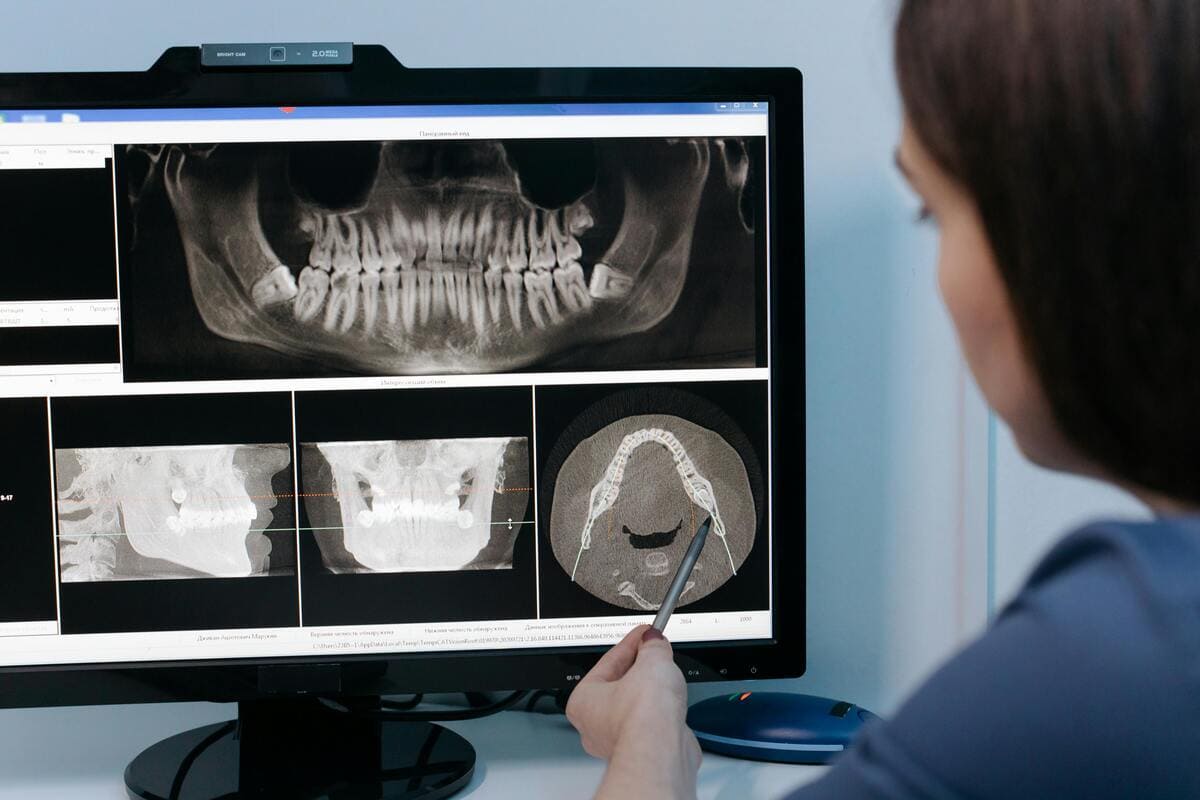
Table of Content
Key Takeaways
- Due to the evolution of the human being (having a smaller jaw) it is highly probable that wisdom teeth will have to be extracted.
- When wisdom teeth are coming out or trying to come out, they generate many related discomforts such as pain.
- And if they do come in, it is very likely that they will come out in a bad position, which generates problems such as cavities, crowding and more pain.
- The most sensible thing to do is to have a panoramic x-ray from the age of 18 so that your dentist can evaluate and give you his or her recommendations.
- The earlier you do it, the smaller the wisdom teeth roots will be and the more comfortable the extraction will be.
- Ideally, the extraction should be performed by a dentist who specializes in surgery.
What are the Wisdom Teeth ?
That is the common name by which third molars are known, that is, a wisdom tooth is that tooth that comes out (or erupts) in the most posterior part of our dental arch both on the left and right side.
In total there are 4 molars: two in the upper arch and two in the lower one
Estimated age of eruption is from 18 to 25 years , for this reason it is popularly said when reaching the age of majority, the trial stage is entered or be sane (wisdom), hence their names.
Wisdom Teeth: The Problem
The issue with these molars is that due to the evolution of our human species, our jaw has become smaller or shorter than that of our hominid ancestors.
Despite this evolutionary detail the wisdom teeth continue to form in most of us, but now with less room to get out , although sometimes they do so without any problem.
In most cases, this lack of space presents obstacles that totally or partially prevent the third molar from coming out or erupting. This causes the tooth to stay included (never come out) or be impacted with some bone structure or the neighboring tooth that deflects it, tilts and gets stuck
Many times this shock causes the wisdom teeth to be horizontal
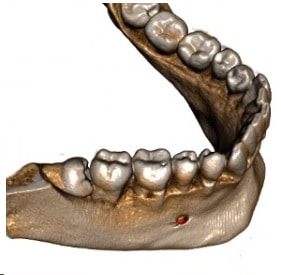
Photo: Asiri 3D Archive
Wisdom Teeth Symptoms
When wisdom teeth have problems erupting, they may present:
- Intense acute pain local that can radiate to areas of the face, ear and head
- Local intense acute pain that can be reflected to other areas
- Headache
- Earache
- pain in the face
- Difficulty opening the mouth
- Inflammation of the gum
- Caries own or in neighboring teeth (due to the difficulty for a correct brushing)
- Bad breath
In most cases, when there is pain, the patient goes to a consultation and solves his problem with the wisdom teeth
Problems if we do not Pay Attention to the Wisdom Teeth
In some cases, the pain may subside spontaneously or never appear , however there may still be problems that if we do not attend to, they can be very serious, such as:
- Infections
- Loss of bone of the maxilla
- Crowding mainly in anterior teeth
- Bite problems
- Occlusal interferences: collision when chewing between a lower tooth with its corresponding upper tooth, killing the nerve of one or both.
- Periodontal Disease [1]
When the pain subsides or never appears, that is when most attention must be paid to the wisdom teeth
The Smart Decision
Surely you are wondering what should I do?
The best thing is, regardless of whether they have caused a problem or not , assess the condition of your wisdom teeth, to assess whether or not it is necessary to extract them.
This is done with a panoramic X-ray like the one shown below:
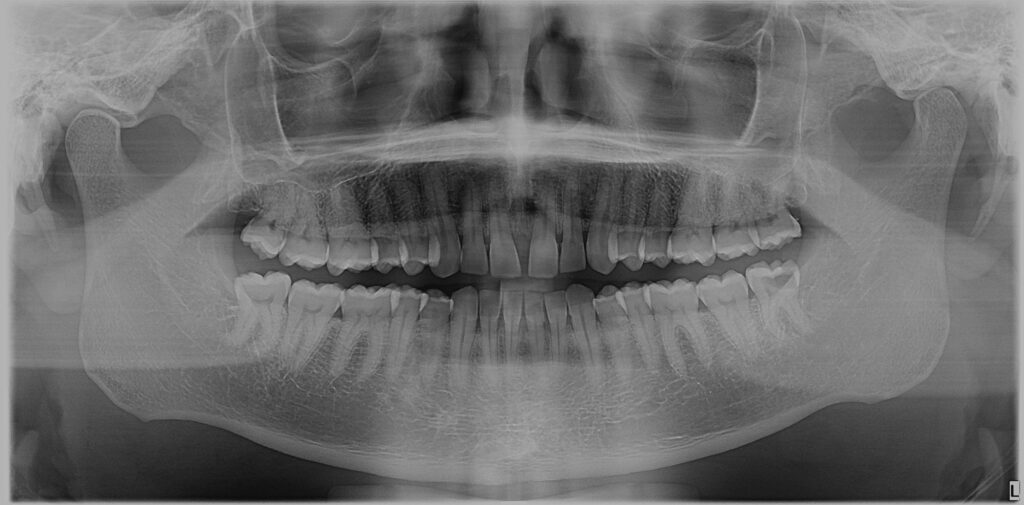
If you need to take a panoramic X-ray, just tell us and we can help you.
With this X-ray at the Asiri Dental Care Center in Quito we can Evaluate your case with your Trusted Dentist
This X-ray should be evaluated by a Maxiolofacial Surgeon who will give you your diagnosis and the next steps to follow.
If you are over 18 years of age, and regardless of whether you have pain or not, you should evaluate the condition of your wisdom teeth
If you need to extract wisdom teeth in Quito
At Asiri Dental Center , we can help you with your extraction of the wisdom teeth in Quito
We can make a correct diagnosis and if it is necessary to do the extraction of wisdom teeth in Quito with a Maxillofacial Surgeon following the dental postsurgical indications
Only a Maxillofacial Surgeon has the studies and experience to extract teeth that are in difficult or compromising positions, as well that you should be very careful when choosing your trusted Dentist in Quito for this procedure.
I insist that you should do it with a Maxillofacial Surgeon because like any surgical procedure, the extraction of wisdom teeth has its risks and complications inherent to the use of anesthesia and the manipulation of gums, bones, teeth and nerves.
Wisdom Teeth Removal Procedure
Wisdom teeth removal is a common procedure performed to relieve pain and prevent future problems.
Before extraction, the dentist will evaluate the position of the wisdom teeth through x-rays and determine whether a simple or surgical extraction is necessary.
During the procedure, local or general anesthesia will be used to ensure your comfort and the affected wisdom teeth will be removed.
Once your case has been evaluated and the surgery procedure planned, the necessary third molars will be extracted
Normally the 4 wisdom teeth are usually extracted together, so that it is a single rest that you must follow
You must also consider and evaluate aspects of Biosecurity of your dentist to avoid infections in the procedure
It is usually done in a single appointment, using local anesthesia and you will need 2 days of rest to recover
If stitches were placed, they are removed after a week
Recovery from Wisdom Teeth Extraction
After wisdom teeth removal, it is important to follow the post-operative care instructions provided by the dentist.
This may include using cold compresses to reduce swelling, avoiding hard or hot foods for the first few days, using gentle saltwater mouth rinses, and taking prescribed pain relievers as needed.
Complete recovery may take several days or weeks, depending on the complexity of the extraction.
The extraction of wisdom teeth is an outpatient procedure, that is, it is done in the dental office and once it is finished, you go home.
You must follow all your dentist’s instructions with all the things you should do after wisdom teeth removal to achieve a faster and more satisfactory recovery.
Possible complications may arise during or after extraction
Although wisdom teeth removal is a common and safe procedure, and your dentist will make you feel relaxed. While complications are uncommon, it’s important to know about them. Here are the potential risks:
- This intervention requires local anesthesia or sedation, and its implicit risks
- Swallowing or inhaling small surgical materials.
- Allergy to the anesthetic or other medications used during your dental procedure
- Swelling may occur and will be managed with medication
- Temporary difficulty opening your mouth (trismus) may occur
- Bruising
- Damage to nearby teeth
- Wound may open
- Temporary or, in some cases, permanent numbness in the lower lip and chin may occur, especially with lower wisdom tooth removal
- Temporary or permanent numbness of the tongue may occur, especially with lower wisdom tooth removal.
- Infection may occur and will be treated with antibiotics
- Osteitis (Dry socket)
- Sinusitis (Only in case of upper third molars).
- Osteomyelitis.(Bone infection)
- Oroantral communication. (Opening between the mouth and sinus)
- Jawbone fracture
It is important to discuss any concerns or questions with your dentist before the procedure to be fully informed and prepared as well as inform them of any special medical conditions you may have.
Alternatives to removing wisdom teeth
In some cases, wisdom teeth may not require extraction if they do not cause problems.
However, if your wisdom teeth are impacted or causing recurring discomfort, extraction may be recommended.
In specific cases, other options may be considered, such as partial removal of tissue to allow partial eruption of the tooth or removal of wisdom teeth at an early stage before they cause problems.
Conclusions
Wisdom teeth are a normal part of dental development, but they can cause problems and discomfort for some people.
If you are experiencing pain or symptoms related to your wisdom teeth, it is important to see a dentist to get a proper evaluation and determine the best treatment plan.
Remember to follow post-operative care instructions after extraction and maintain good oral hygiene to prevent future dental problems.
With the right knowledge and proper care, you can face the challenges of wisdom teeth with confidence. Your dental health is important!
References
| 1. | Smart, G. Third molars may have a negative impact on periodontal health. Evid Based Dent 6, 95 (2005). https://doi.org/10.1038/sj.ebd.6400339 |


